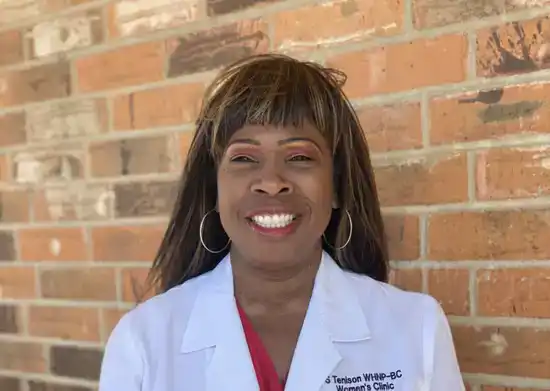Sherry Tenison has been a women’s health advocate for more than 20 years. She’s seen how improving education and contraceptive access can change women’s lives.
“What prompted me to open my clinic was that these women were not getting the education that they needed as it relates to their birth control, their bodies. They were not being treated in a holistic manner. I felt as though that was happening because they were low-income women. The patients were a number and not individuals.”
Q: Tell us about your job—what you do, whom you serve, and why you do it.
A. I became a women’s health nurse practitioner in 1996. From that time until now I’ve had lots of hands-on experiences in different practice settings. Some have been in Federally Qualified Health Centers (FQHCs), some in non-profits, some in private practice settings alongside MDs. So I’ve had quite a bit of experience in different types of facilities. But all of these facilities have always catered to or serviced low-income females ages 13-65.
Q: What kind of barriers do women in Dallas face when it comes to getting birth control?
A. Some of the barriers are financial. If the patient does not qualify for any type of Medicaid, then of course she’s going to go without birth control because she can’t afford to pay for it out of pocket. I have always been aware of that situation so if I had to write the patient a prescription I would always make sure I wrote it for pills on the Walmart list that are $9. A lot of my patients would say, “Oh, I can afford that.” But if they want a LARC like the IUD or implant then they wouldn’t be able to afford it because they don’t have any insurance. That’s the number one barrier to receiving birth control.
Q: What is the single most important thing you think community leaders need to understand about the issue of contraceptive access?
A. Education is a must. It’s the number one barrier that we have to overcome—to educate our patients about contraception. I want the affluent people to understand that, too. Not only should we make contraception accessible to lower-income women but we also have to make education accessible, too. Lower-income women are getting information from friends and family or YouTube versus going to their medical provider and getting the correct information about the birth control methods. Other women are able to do that without those barriers. We can’t exclude cultural beliefs about birth control methods, either. Some of those are difficult to break through as well; for example, how different cultures feel about birth control. Once again, education comes in.
